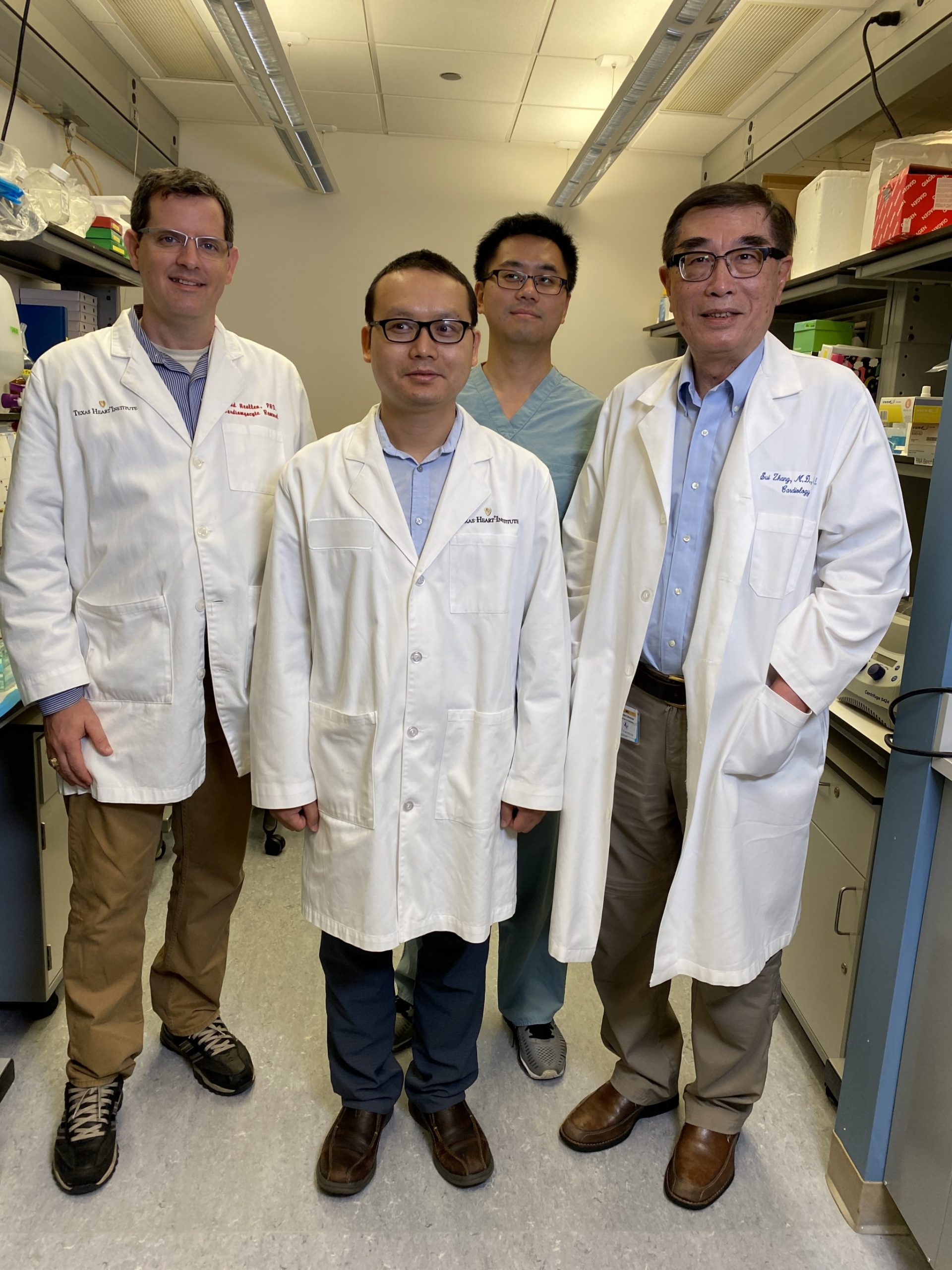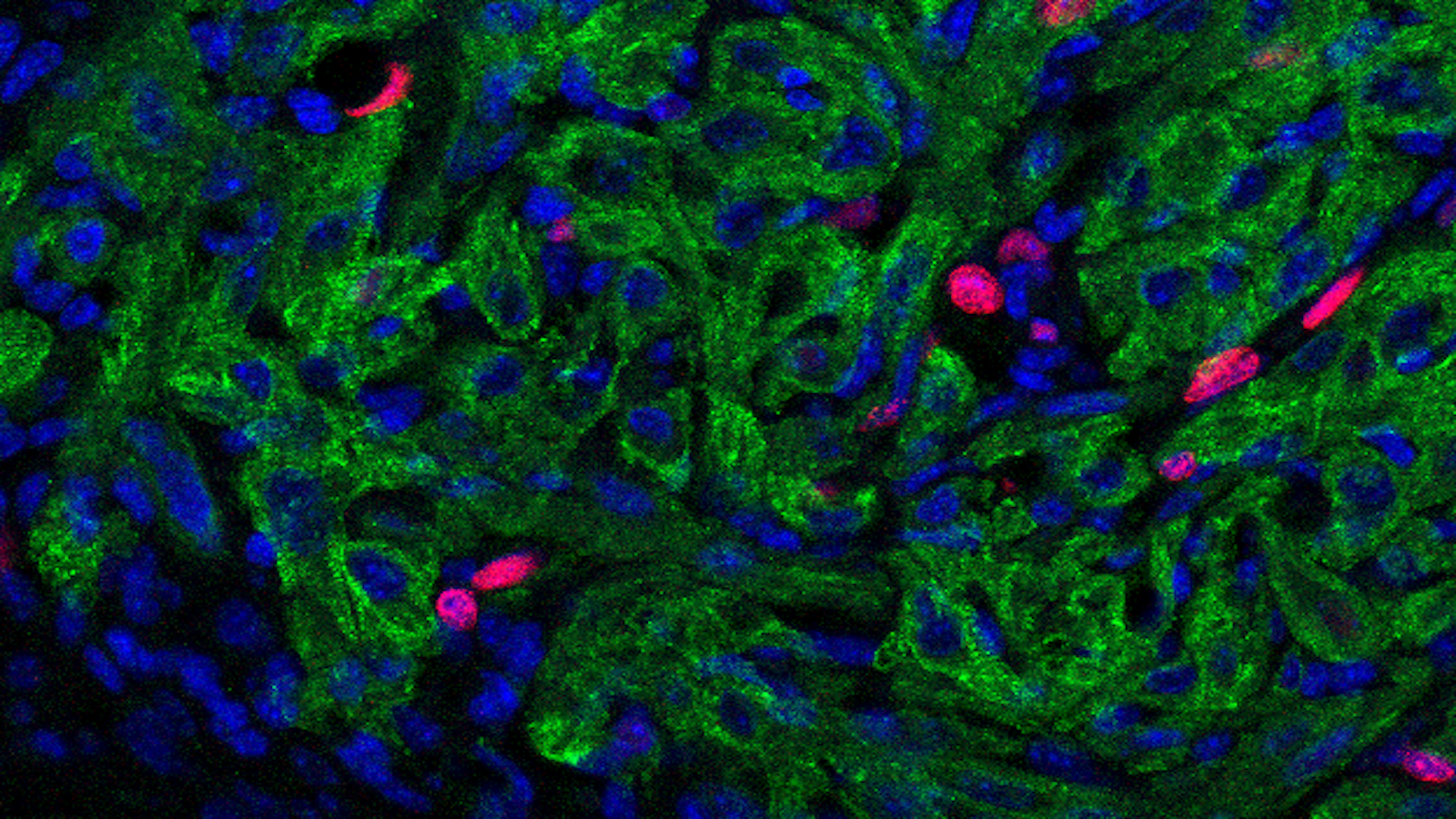A New Era Begins
In the United States, approximately 6 million patients over age 20 suffer from heart failure. Heart failure is irreversible and worsens over time. The 5-year survival rate for patients with Stage D heart failure, the most advanced form of the disease, is only 20%.
Gene Therapy for Heart Failure
The dismal outcomes for patients with heart failure are largely due to the fact that the heart is a nonregenerative organ; cardiac muscle cells, known as cardiomyocytes, are highly specialized and have a limited capacity for self-renewal. Patients suffering from heart failure have very limited treatment options, and up to this point, it has been essentially impossible to heal injured heart muscle in humans regardless of available technology and knowledge. James F. Martin, MD, PhD, and his Cardiomyocyte Renewal Laboratory at THI could change this.

“Our work represents a major clinical breakthrough that could lead to a treatment to reverse heart failure and effectively cure the number one cause of death in America.” – James F. Martin, MD, Ph.D. Director, Cardiomyocyte Renewal Laboratory
THI scientists have discovered a gene therapy–based approach that could eventually lead to a new treatment strategy for heart failure. By directly administering viral vectors that target genes involved in organ development into heart muscle, the group showed that they could repair failing hearts in animal models. This work was published in the prestigious journal Science Translational Medicine. The technology behind this innovative treatment approach has been licensed to YAP Therapeutics, Inc., which is currently planning phase I clinical trials in humans.
“These findings from Dr. Martin and his team at the Texas Heart Institute Cardiomyocyte Renewal Laboratory and its newest venture, the McGill Gene Editing Lab, cannot be overstated in their magnitude,” noted Emerson Perin, MD, PhD, THI’s Medical Director and a co-investigator. He added, “The practical application of YAP101 gene therapy is significant, and it has the potential to become a paradigm-changing treatment for heart failure.”
YAP Therapeutics is a company co-founded by Dr. Martin with the late James T. Willerson, MD, former President of the THI, and Olav Bergheim, Founder and Managing Director of the life science venture accelerator Fjord Ventures, to develop and commercialize medicines that treat severe diseases through tissue regeneration. According to Dr. Martin, “The plan is to advance our gene therapy, take it to clinical trials, and ultimately treat people. The goal here is to translate the work of our research teams at Texas Heart and at Baylor College of Medicine into a life-changing medicine, labeled YAP101, for people with heart failure.”

New Therapeutic Strategy for Peripheral Arterial Disease
The ability of muscle to regenerate itself gradually declines with age. This decline poses a fundamental challenge to the repair of damaged skeletal muscle in older patients with peripheral arterial disease (PAD). Despite the high incidence of PAD, current therapies for it are ineffective in replacing damaged muscle tissue with new, functional muscle. Therefore, identifying new treatment approaches for PAD is the focus of a collaborative effort between investigators in THI’s Cardiomyocyte Renewal Laboratory and Molecular Cardiology Research Laboratories.
Drs. James F. Martin and Richard A.F. Dixon, and their teams, demonstrated for the first time that inhibiting the Hippo pathway in a mouse model of PAD resulted not only in neovascularization (new blood vessel growth) and improved blood flow in the hind limb but also skeletal muscle regeneration from resident stem cells, which improved running endurance. This strategy may overcome the current limitation of functional skeletal muscle regeneration in aged populations with PAD or muscle injury. This study was published in the journal Stem Cells.
Explore our new Digital Annual Report or read the report in a Flipbook or Mobile/Tablet view.





